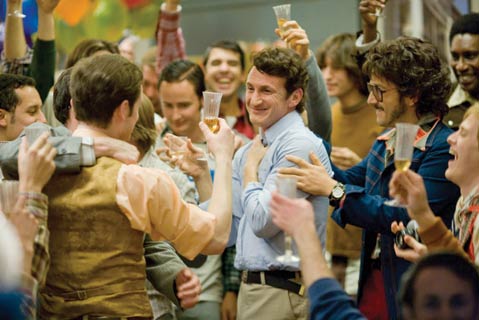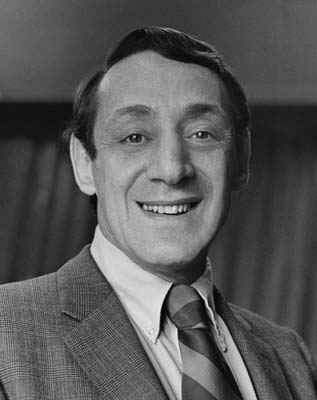An Interview with Dustin Lance Black, Screenwriter of Milk
More Harvey Milks

When Harvey Milk, the first openly gay man to hold major elective office in the United States, was assassinated in 1978, Dustin Lance Black wasn’t yet born. Raised by a Mormon family, Black learned about Harvey Milk while coming to terms with his own homosexuality in high school, and Milk became his hero, his obsession, and, in a way, his father figure. After many years of exhaustive research and meetings with Milk’s associates and friends, Black wrote a “spec” script that eventually landed in the hands of legendary independent director Gus Van Sant. Eighteen months later, they began shooting with Sean Penn in the lead role.

The film, which set box office records for a limited release on its opening weekend, isn’t just a story about a politician-it manages to give a human face to the gay civil rights movement. Because of the recent debacle with the passage of anti-gay marriage Prop. 8 in California, the immediacy, timing, and relevance of this film is astounding.
I recently sat down with Black to discuss the film, the legacy of Harvey Milk, the gay movement, Proposition 8, and the Mormon Church.
Why did you decide to focus on such a short period of Harvey Milk’s life? That was a tough decision. I did a couple years of research, and you are constantly hearing these fantastic stories about Harvey from adolescence and in his twenties and thirties. And they are fascinating stories because everything about Harvey was a contradiction. But you can’t do birth-to-grave and get deep when you take that big of a bite, so I had to make those tough decisions and figure out what moment I wanted to tell of his life. What felt like it had the greatest relevance and resonance with what was still going on today was that time covered in the movie. : It’s really just those San Francisco years, that six-year period [1972-1978]. It’s really about a man in this specific moment in the gay movement. : I wanted to keep it personal, and I felt like it needed to be about the man in that particular moment of the movement.
In the movie, Harvey Milk preaches that unless you advocate for yourself, you’re not going to succeed. You’re basically doing the same thing for Harvey. That makes a lot of sense and I definitely agree. We just saw this play out, unfortunately, in the Prop. 8 fight. If you make it just about politics or vague language about civil rights or even just civil rights or just rights period, people tune out. People are interested in a personal story. They want to know who is affected and how they are affected. And so you have to get to know the person. It’s very important that people get to know Harvey and ideally the people around Harvey. It would have been great if we had gotten to know some actual gay and lesbian people in the fight over Proposition 8. I think it would have turned out very differently.
The film doesn’t tiptoe around the fact that we’re dealing here with a homosexual character. Two minutes into the film, they are already kissing. There was nothing coy about the Castro neighborhood in the ’70s-nothing. It was the place Harvey went so he could be free. So I would not have been doing my job if I had portrayed a closeted Castro.
But it also serves a great purpose. You basically are telling the audience, “Look, here are two men kissing. Get used to it! Now that’s done, so let’s concentrate on the real subject.” That’s a good point. I always had the first sex scene in the first five pages, which was just to say, “I gotta get it out there ’cause I don’t want this to be about gay sex or homophobia in this way”-not a relationship of homophobia between the audience and the screen. It’s important to not have any audience missing the story because they are waiting for Sean Penn and James Franco to have a kiss.
When you started writing this script in 2004, could you have imagined what just happened with Prop. 8? I could have never ever predicted that there would be a statewide initiative that would legislate bigotry into our constitution. : But in spring 2004 when I first started, we were in the midst of a presidential reelection campaign where the Karl Rove strategy was to pit homophobes against the gay and lesbian community, and it was a successful strategy. And in that fight you heard things like “defend our children” and “protect our children” and “protect our families.” So it was very eerie because I was hearing these same things as I was looking into [homophobic pop singer] Anita Bryant and the fight in Dade County [where she successfully fought to repeal antidiscrimination laws in 1977]. : And we are still having the same conversation 30 years later. Why is that? Why haven’t we figured out how to combat these arguments? They’re very false arguments and hateful arguments :
But keep in mind: Proposition 8 is not over. And if we successfully fight it, there will be another proposition. Certainly, this isn’t just a California issue-this is a national issue and we will have other fights in other states, and I hope that we will have a debate about finally having federal protection for gays and lesbians, so there’s that fight left. And hopefully we can learn from the lessons of Harvey Milk and his group.
Is there a Harvey Milk out there today? I think there is a Harvey Milk out there today. I think there are probably a few of them. We need more than just one. I haven’t met him or her- I certainly didn’t meet him or her when I was doing work against Prop. 8. But Harvey Milk was considered a joke candidate until he started to lead those marches and rallies after the devastating developments in Dade County and Wichita [where gay rights laws were repealed]. It was out of those huge defeats that he was able to take up that bullhorn and become that leader and get elected and lead his people. This is one of those moments where leaders are born. I am hopeful that there are three or four Harvey Milks. It would be nice to have one in California and one in New York and one in Texas and Oklahoma-it would be fantastic. Maybe even one in Salt Lake City. I would like that.

Being a lapsed Mormon yourself, how did you feel about your former church being behind Prop. 8? It was very hard. Most of my family is still active in the Mormon Church. They live in Utah and Provo and Orem and Salt Lake City. And I am sure they did what every good Mormon did. They did what the president of the church asked them to do and they donated whatever they could to the Yes on 8 campaign. That’s hard for me, and I have a lot of hurt feelings about it and anger about it. It feels like betrayal. But-and this is my big “but”-I feel it doesn’t do the gay community any good to try to bring down the Mormon Church or try to wipe the Mormon Church off the planet or dedicate a lot of time to take away tax-exempt status.
Why? Because we could bring them down, and we would still not have our rights. But with all this said and done, what I think this election did was clearly identify groups that the gay and lesbian community need to do more work in and more outreach toward. There are racial groups, senior groups, and obviously religious groups who voted against gay and lesbian rights on November 4. And it’s our responsibility to now reach out to those groups and to educate them and to introduce ourselves and to do all of the work Harvey talked about. They need to understand those stereotypes are not the case and those are not real fears. [And] especially with the Mormon Church. I think it’s time for a real reconciliation movement between the gay and lesbian community and the religious communities in this country. I think for too many decades, the politicians have driven a wedge between the gay and lesbian communities and the religious communities for their own benefit, and I think it’s time to start to broach those divides. It’s hard, but I look at it as an opportunity and a real challenge for the gay and lesbian community.
Don’t you believe your film can help this cause immensely? I really hope so. I’m so heartened by what I saw opening weekend with the box office results-not just the fact that we broke records, but when we see the breakdown of attendance, the vast majority of the people who saw the movie were straight and of all ages. That’s what really brought a tear to my eye. I always thought that the film would be successful if we captured Harvey Milk, like the way Harvey really was-the personality, the humor, the corny bad jokes, all of it. And thank God; I think Sean really nailed it.
The movie introduces gay people as gay people, unlike Brokeback Mountain, which introduced them as closeted. That’s the big difference between Milk and Brokeback Mountain. We can finally say this is what we’re like; this is who we are and how we are when we’re out. And I hope we will definitely win some love and respect from our straight brothers and sisters in this country.
Well, you will. As a gay man and film lover, I am very proud of what you’ve done and I’m very proud of the film. Oh, thank you so much.
4•1•1
Milk is now playing in Santa Barbara theaters.



